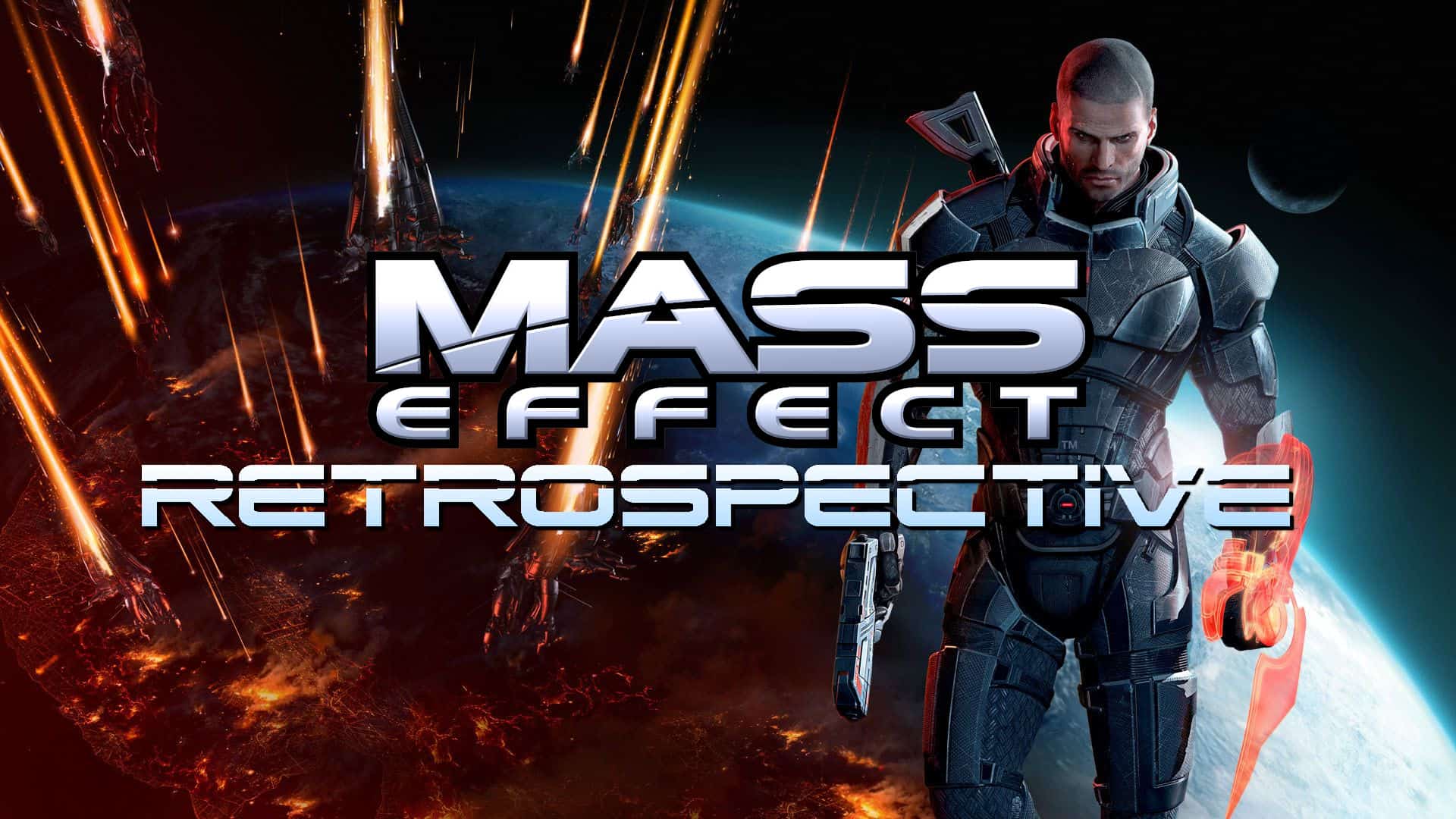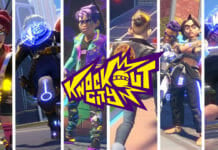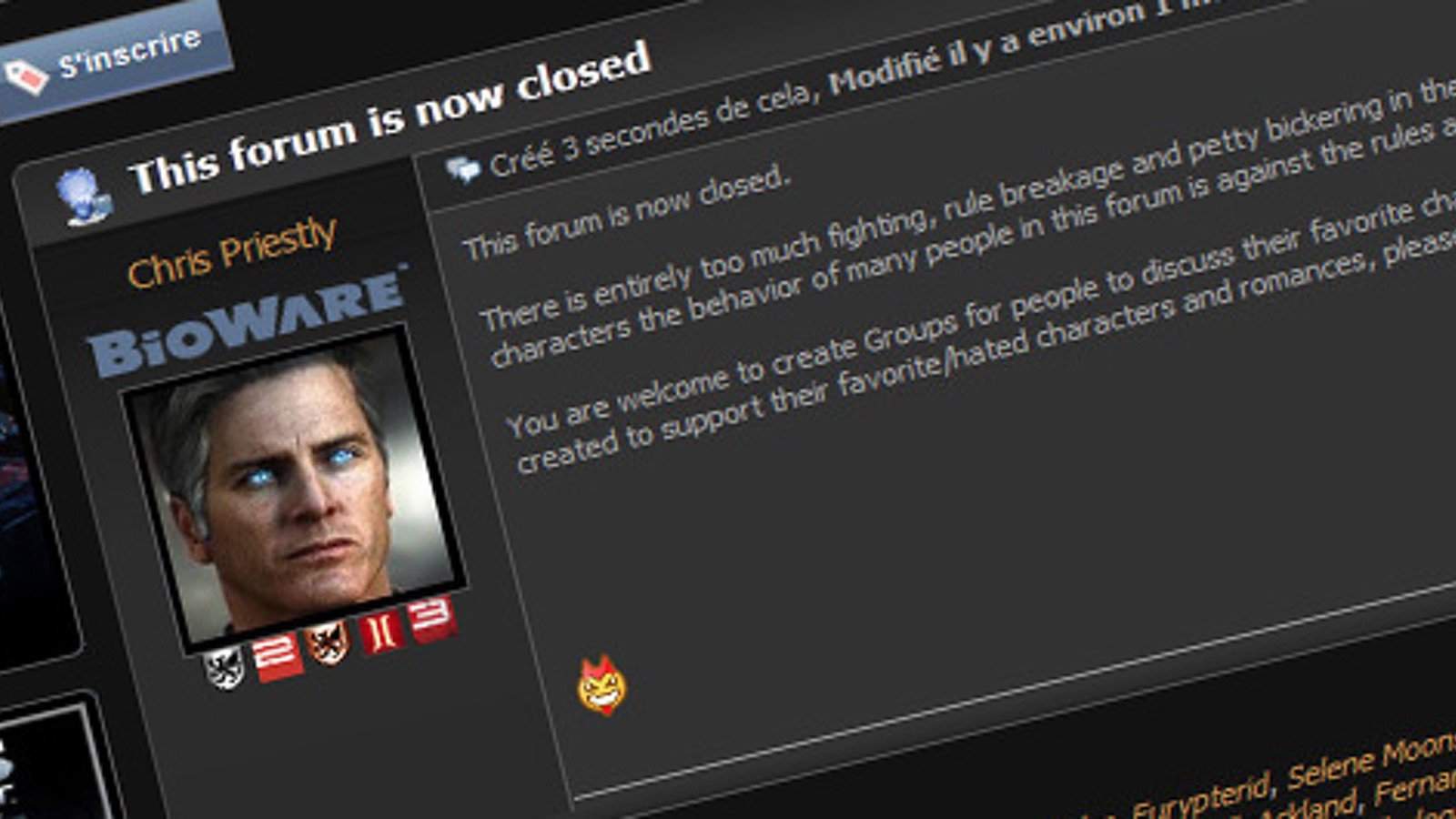When Bioware’s Mass Effect first exploded onto the gaming scene in 2007, it became an overnight role-playing game (RPG) classic. The franchise has since become one of the most beloved examples of the science-fiction RPG genre. Each entry takes players on a lengthy tour of the Milky Way galaxy, and always features intriguing narratives that are coupled with a unique and diverse cast of characters. Many fans were left unsatisfied with the conclusion of the final instalment in the Commander Shepard trilogy. Nevertheless, there is no question that the series remains one of the most exciting and ambitious video game franchises in the modern era. However, when the fourth major instalment, Mass Effect: Andromeda, hit shelves; many fans were left betrayed by the very developers they had learned to trust. In this Mass Effect Retrospective, I explore the rise and fall of this beloved science-fiction role-playing game franchise.
The birth of Mass Effect
Bioware, the primary developer of the Mass Effect franchise, has long been known as a skilled developer of Western RPGs. The Baldur’s Gate games, for instance, are set in the Dungeons & Dragons universe and are real RPG classics. In terms of popularity, however, nothing will beat the developers’ smash hit Star Wars title, Knights of the Old Republic – a title that clearly served as inspiration for the studio’s new “original universe” that eventually became Mass Effect.
https://youtu.be/Gf1GTHa5wJc
Much like Knights of the Old Republic, Mass Effect featured state of the art 3D environments, a galactic map where players could travel in their starship, and the option to pursue complex relationships between the player character and other party members. Furthermore, Mass Effect improved upon Bioware mainstays. Most notably character and class customisation, and character progression. With all of these elements, Mass Effect was poised to finally deliver on the promise of a unique science-fiction RPG based on an original Intellectual Property (IP).
When Mass Effect finally released on 20 November 2007, the game fulfilled most of the promises it made. It was an instant hit among Bioware fans and also new players who joined the hype train before its launch. The game introduced players to the epic conflict between the Citadel, its allied and peaceful races, and a splinter group of Geth (a highly intelligent artificial race) and their mysterious Reaper overlord, Sovereign.
The game also provided satisfying RPG mechanisms: an adequate amount of exploration across multiple planets with various forms of traversal; incredible and varied enemy types, all of whom were distinct in their own way; an enjoyable character progression system with unique upgrade trees, perks, and quirks depending on what choices the player made; and extremely relatable and lovable supporting characters. The best part, perhaps, is that Bioware made everything about Mass Effect believable; by rooting the sciences of the game, regardless of how silly and farfetched they may have seemed, in real-world science and physics.
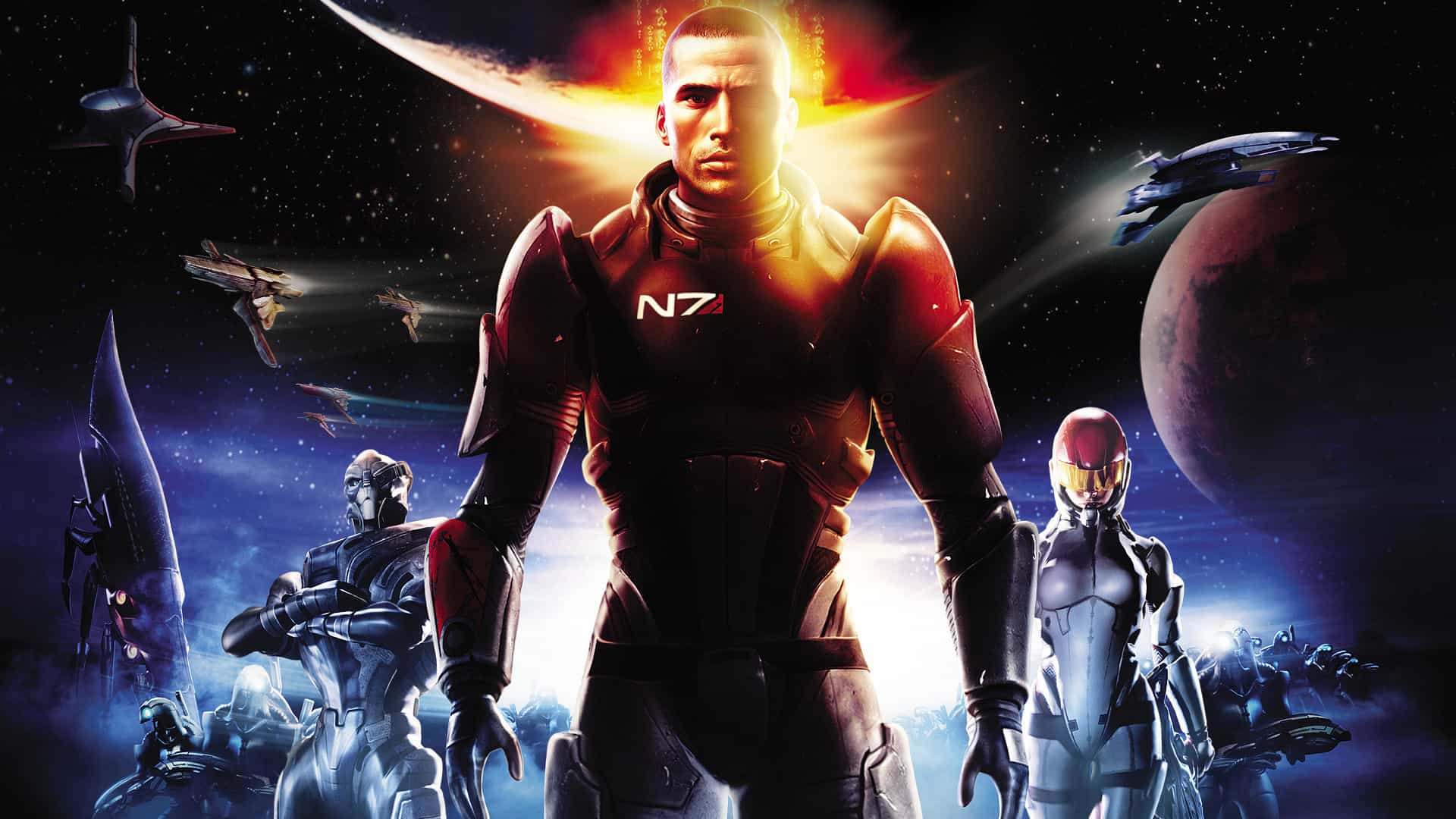
With that said, it must be noted that Mass Effect also had its fair share of glitches – many of which made its way onto video streaming platforms in hilarious fashion. All-in-all, however, it was a brilliant game. It managed to engross players in a vast and mysterious universe where everything had a valid and scientifically-sound explanation, accompanied by an interested and engrossing narrative. The game’s storyline would also be further fleshed out in games to come; with a story that had every single fan speculating whether or not the Reapers were stopped for good, or if they would come back – regardless of Shepard’s efforts. It was great.
Bioware went mostly silent in the year following Mass Effect’s release. This made sense given how the studio was faced with the challenging task of following up on one of the most well-received RPGs of its time. However, another year on, and the world was met with a teaser for Mass Effect 2.
A sequel to remember
Set for release in 2010, Bioware decided to up the ante, both in the real world and in-game. With a much larger budget and a new mission to introduce the series to new players, Bioware made the decision to increase the second game’s emphasis on combat and real-time action – two parts of the first game that admittedly felt lacking. As such, Bioware had one goal: to make Mass Effect 2 an experience that rivalled the best third-person shooters of the day. While the end results were mixed, there is no denying that the game very much got the “Hollywood” treatment.
Mass Effect 2 featured enhanced shooting mechanics with brand-new gunplay elements. The two-year gap in the narrative adequately answered why all weapons moved away from different clips of ammunition, in favour of universal “heatsinks”. New additions also included a revised weapons system. One that allowed players to swap weapons at checkpoints, with the choice of one or two light weapons and a heavy weapon – depending on the chosen class and specialisation. Compared to its predecessor, Mass Effect 2 provided more tactical options with a well implemented cover-based combat system that allowed players to approach scenarios in different ways.
With a new emphasis on combat and action, it was reasonable to think that the game might lack in the narrative. Thankfully, this was not the case. Bioware not only upgraded the ageing combat system from the first game, but they also upped the ante story-wise. Mass Effect 2 gave players even more complex relationships than the first – something that played heavily off of the two-year narrative gap between the two titles. Player choices now carried a lot more weight than in the first game as well. The universe also received a brand-new coat of paint. Suddenly, everything was shinier and much less gritty. Bioware masterfully explained this away by injecting it all into established lore and explanations. What should have been a retcon, for instance, was explained in such a way, and injected into the lore in such a skilful manner, that it never once felt forced or out of place.
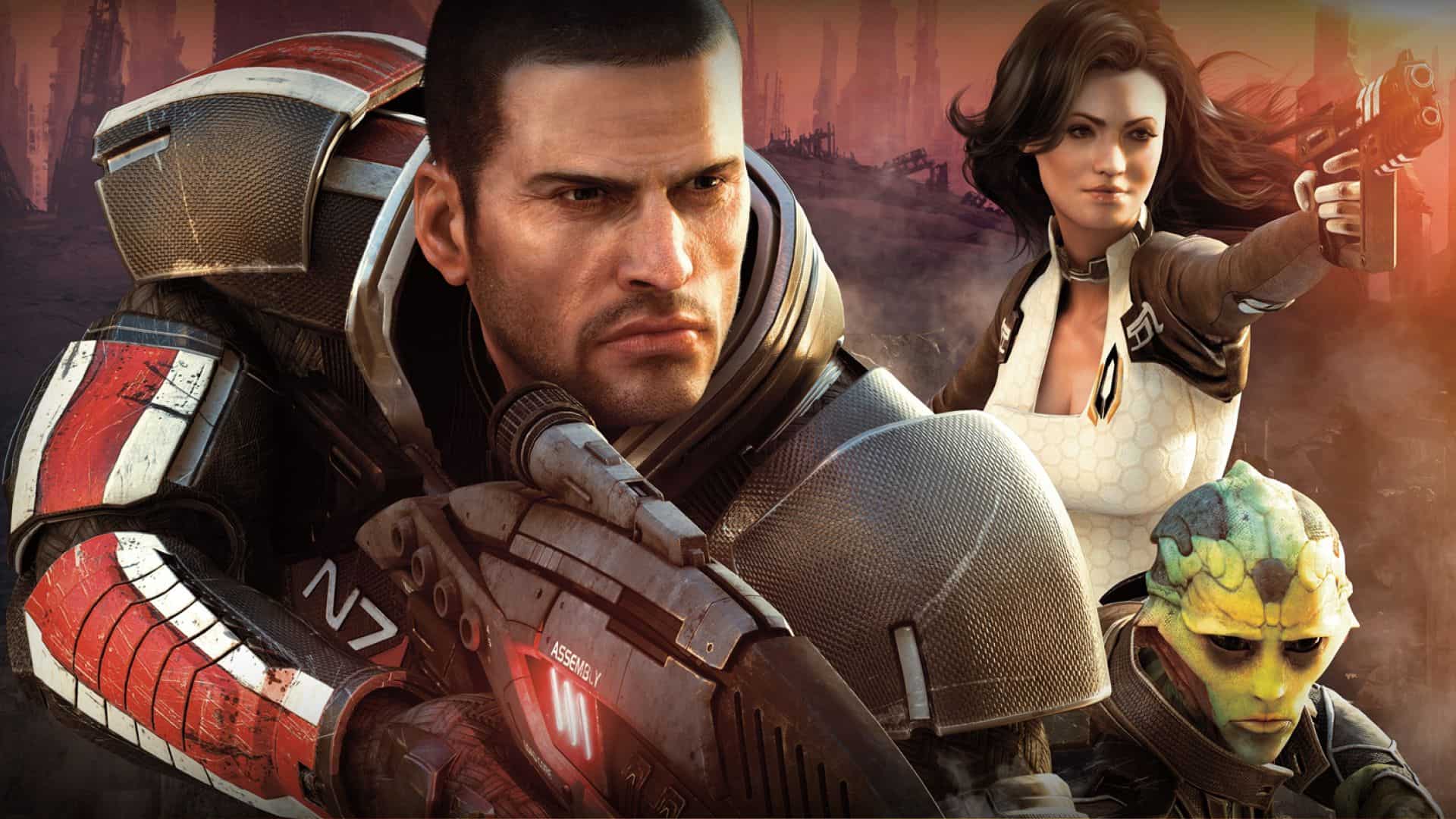
Similarly, the new “big bad” of the story introduced an incredibly intriguing plot twist and narrative. One that worked in tandem with with a much more complex Renegade and Paragon system. In Mass Effect, choices were very much black and white. In Mass Effect 2, however, the overhauled system offered choices that were far more nuanced. As a result, choices were no longer “all good” or “all bad” and relied heavily on strings of actions and choices. This system also weaved itself into the complex relationships between Commander Shepard and the crew of the new-and-improved Normandy SR-2. The game even allowed players to import their saves from the previous title, in order to port relationship statuses and character progression over into the new title.
Mass Effect 2 released on 26 January 2010 to much fanfare and very good critical reception. Contrary to its predecessor, the game featured very few bugs. For gamers who missed out on the first game, Bioware created a spin-off title called Mass Effect: Genesis. This interactive comic allowed players to recap the events of the first game, as well as to make the very same choices they would have if they played the game – just in a condensed form. Doing so allowed those choices to make an impact on the Mass Effect 2 gameplay experience.
As the credits rolled in Mass Effect 2, millions of players were left wanting to know more. Unlike the first title, the sequel ended on somewhat of a cliffhanger. While it can stand on its own as an action-adventure title, the millions of players who played it, knew that something was about to hit the proverbial fan in the coming sequel.
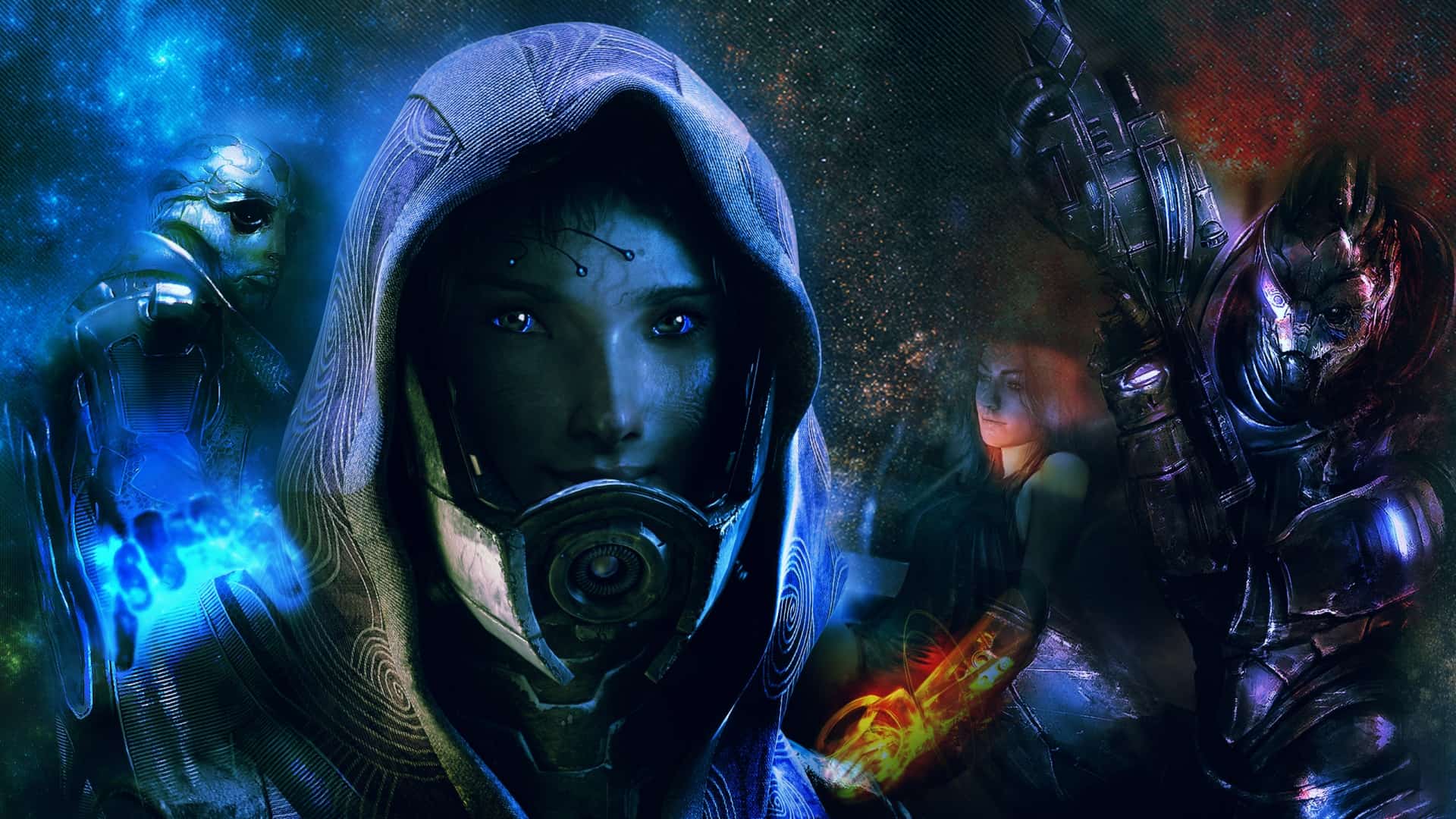
The EA ‘Effect’
Before the cliff-hanger in Mass Effect 2 would be resolved, however, Electronic Arts began sinking their claws into the beloved development studio. EA knew that countless fans were practically foaming at the mouth to find out what happens at the end of the trilogy’s arc. However, instead of focusing all efforts on the final chapter, EA instead brought fans countless trailers for a game that would seemingly never come. EA also thought it wise to offer fans spin-off titles, such as Mass Effect: Infiltrator.
In Infiltrator, fans received another look at the pro-human organisation, Cerberus, and their despicable and vile ways. It was a decent third-person shooter title where players took on the role of Randall Ezno, a Cerberus agent, who discovers Cerberus’s cruelty and goes rogue. The game follows Ezno as he kills Cerberus troopers and frees prisoners from a hostile base. The game was an iOS exclusive title. Admittedly, it was a strong contender on the platform and delivered enjoyable graphics and gameplay. It was not, however, what fans really wanted. Fortunately, Mass Effect 3 received a release date shortly thereafter.
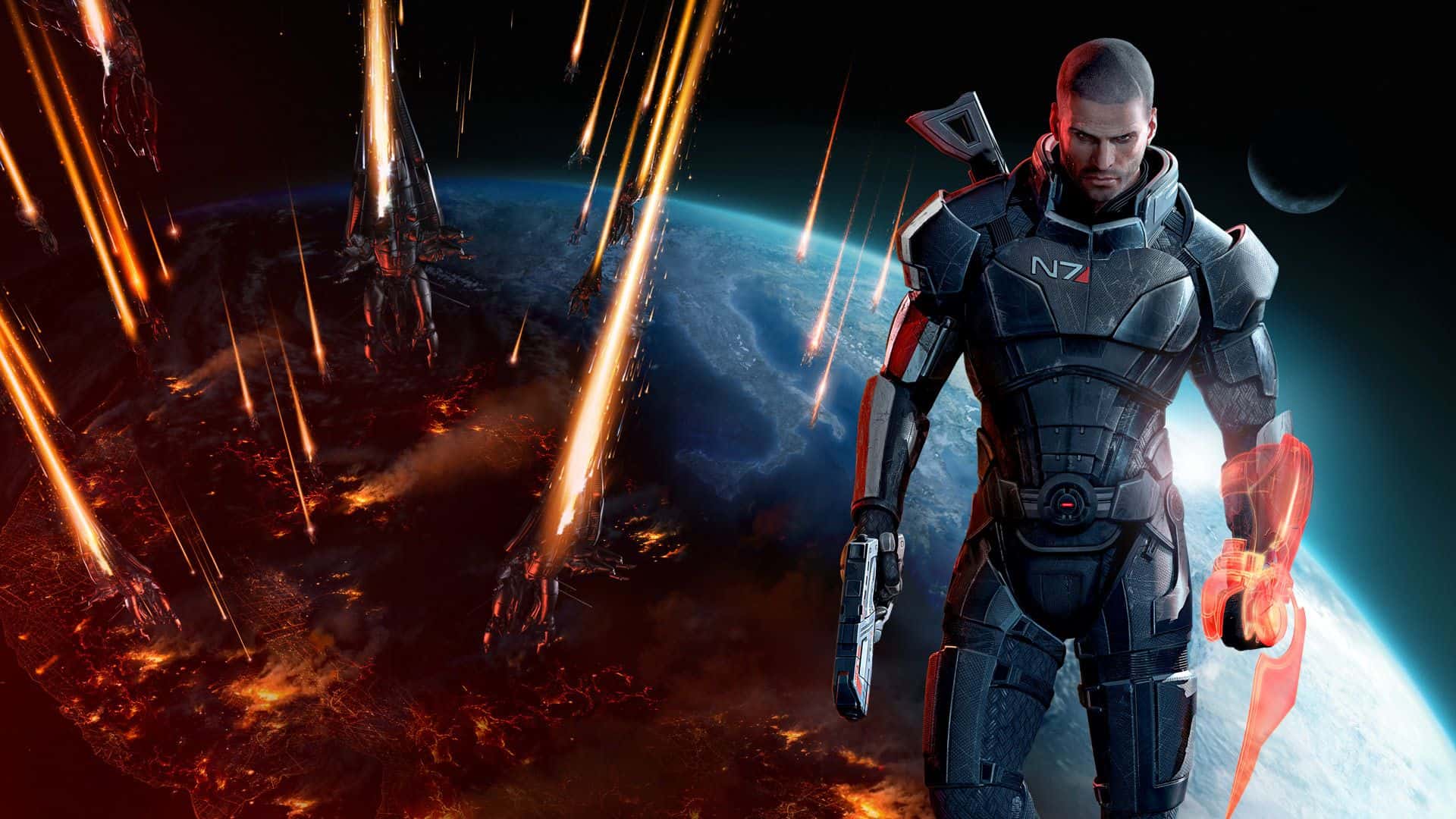
After a long stretch of trailers, rumours, layoffs and previews; Mass Effect 3 finally released on 3 March 2012. The third and final chapter in the Mass Effect trilogy built on the gameplay and the story of Mass Effect 2. It also finally allowed players to see how Shepard’s war with the Reapers would come to a close.
Where Mass Effect 2 showcased what could be done with a bigger and better budget; Mass Effect 3 proved how incredibly well the budget can be stretched to deliver the most satisfying conclusion possible. The final chapter in the trilogy was, for all intent and purpose, the darkest and grittiest of the three. Where Mass Effect 2 was Commander Shepherd’s highest and most action-packed note, Mass Effect 3 would serve as his most trying. The game featured elements of depression steeped in loss; and spurred feelings of separation, need and anxiety. It also emphasised tragedy from both a story and gameplay perspective. The opening sequence of the game is also one that will not be soon forgotten: the Reapers have arrived, and their first destination is Earth.
The Shepard Conundrum
Mass Effect has always been a story about Commander Shepard. Not just any Shepherd, however, but the player’s Shepherd. As such, writing and creating a conclusion that would satisfy everyone would never have been possible. Instead, Bioware decided to craft the end of the trilogy around the galaxy and the greater scheme of things. Therefore, players received a powerful conclusion. Alas, its delivery left a lot to be desired and sent fans into a frenzy – and rightfully so.
While many found the ending to be lacklustre, but by no means bad, a small and very vocal minority of fans made it known that the game was “absolute trash” because of it. This resulted in many media outlets and YouTubers picking up on the negative hype and reporting on it. These individuals felt that, having spent upwards of a decade on the trilogy, they were entitled to a more satisfying and less destructive ending. Especially for “their” Commander Shepard.
Of course, Bioware, being the great developers that they are known to be, subsequently released a number of patches that “fixed” the issues many players had with the conclusion of the trilogy. This included an “extended cut” patch that further expands on the repercussions of the ending that players chose. The extended cut also includes narration of some of the characters in the game, and even “what happened after” segments based on the choices players made throughout the entire trilogy. This patch brought many angry fans back to the good side. Alas, the damage was already done.
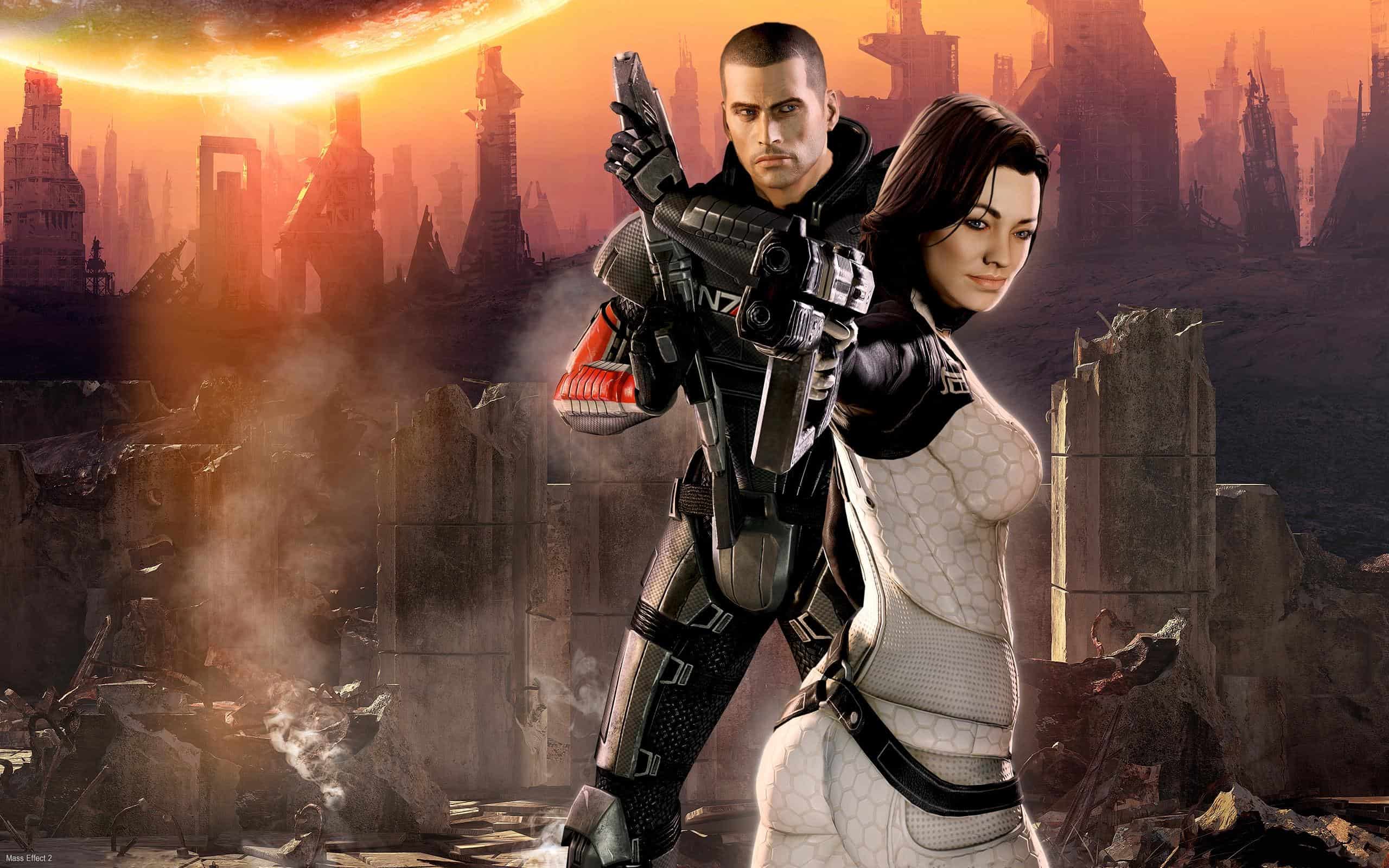
Mass Effect 3 featured the highest budget and development quality of all games released in the trilogy. It brought back beloved characters from Mass Effect, intertwined them into gripping stories together with characters from Mass Effect 2. It let players experience the gripping conclusion of the Geth/Quarian dispute, and even gave players an active role in finding the Krogan a brand-new and well-respected place in the galactic council. Romance options included an ongoing relationship between Shepherd and his interest from the first game, or multiple others from the second, and even new ones in the third; while the crew of the reclaimed SSV Normandy SR-2 featured both new and returning faces.
The game also improved on the combat system of the second title. It enhanced the weapon mechanics to include much more freedom and weapon customisation. It also featured an all-new class and character progression system that built on that of the second game. The story was also incredibly gripping. Where the first Mass Effect introduced players to a small chunk of the world, and the second took players on an all-out guns blazing adventure, the third acted as a proper send-off for Shepard’s galaxy spanning journey. Bioware even released extremely well crafted downloadable content, which served as one of the most beautiful moments in the entire trilogy. Unfortunately, as with most things, the negative outshined the positive.
In the years following the release of Mass Effect 3, Bioware went quiet on all things Mass Effect. Rather, the company focused on releasing newer games, such as Dragon Age: Inquisition (2014), and another title called Shadow Realms – which was announced and cancelled in short fashion. Three years later, however, Bioware revealed a new title, one that had been rumoured for some time.
Andromeda or bust
On 7 November 2016 (for those who may not know, 7 November is known as N7 day by fans of the franchise), Bioware brought millions of fans across the globe together in one fell swoop. The official reveal trailer for Mass Effect: Andromeda was accompanied by a website link where players could “join the initiative” – a programme that would take players to an entirely new galaxy. The Andromeda Galaxy.
Andromeda was unlike anything Mass Effect fans had ever seen. It was the first game in the franchise that would release on 2013’s new generation of consoles. It was set to feature completely revamped and overhauled gameplay elements and it was poised to introduce a whole new set of characters to the universe. A new universe with a whole new set of problems to solve, and challenges to face. Furthermore, the game was also set to involve a narrative where the citizens of the Milky Way are the aliens. Unlike the first trilogy, Andromeda failed in a spectacular fashion.
For the most part, Bioware did deliver on what was promised with Andromeda. The game scored decently with critics, but players ended up panning the game for its laughable graphics and broken gameplay systems. Although the game had everything it said it would have (current-generation graphics, incredible storytelling, and brand-new, relatable characters), the problem is that the game did not feature the same nuance that even the original Mass Effect had.
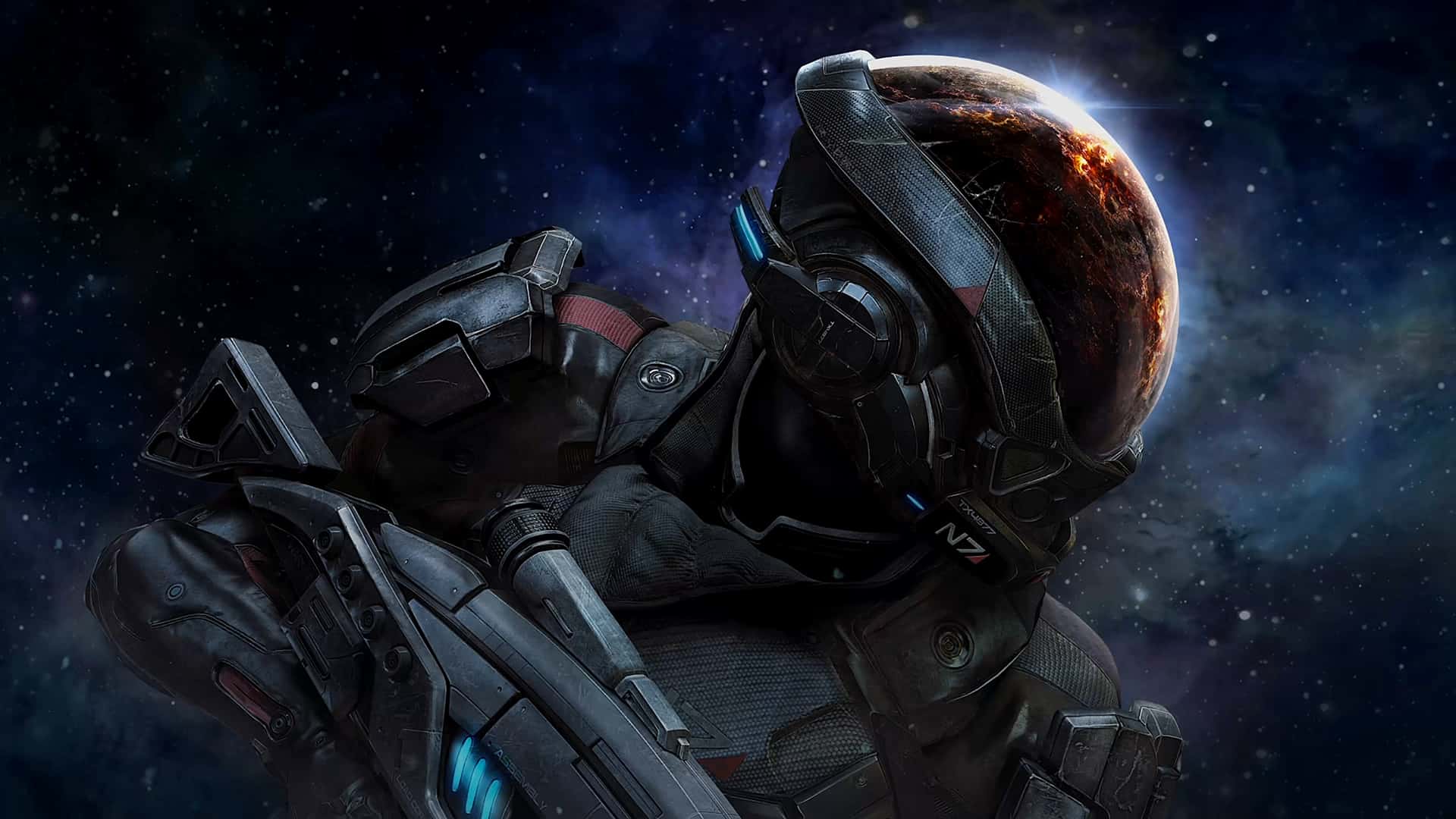
What ultimately caused Andromeda’s downfall was not the laughable graphics and bugs. Those were all patched out in the months following release. Rather, it was the fact that Andromeda felt like an empty shell of Mass Effect’s former self. In less than a week after launch, fans started to find narrative inconsistencies in the lore. The way in which the new title handled the game’s science was also up for debate, relying more on the fanciful than being scientifically sound.
Bioware, as a company and up to the release of Andromeda, always managed to masterfully and skilfully include new gameplay mechanics in the lore. By injecting these mechanics in ways that felt natural, players were able to find them believable. The sudden change from live ammunition to universal cool-downs and the introduction of new armour and biotic abilities, for example, was cleverly explained away through technological advancements. Unfortunately, Andromeda failed to do any of this. Instead, the developers opted to introduce brand new mechanics, technologies, and artificial intelligence – all of which not not exist in the previous lore. While retconning is a regular occurrence in franchises that span decades, it should not happen in a franchise known for its scientifically sound and believable lore and explanations. A possible explanation for the inconsistencies is that Andromeda was developed by an all new Bioware studio in Montreal, versus the main Edmonton studio that developed the original trilogy of games.
Additionally, and unlike the previous games in the franchise, Andromeda was designed more as a start of a new trilogy versus being a title that could stand on its own – both narratively and from a gameplay perspective. It should be noted that the ending was concrete and it did not end on a “cliffhanger”. However, the entire game kept hinting toward “something bigger” – a narrative concept that the previous Mass Effect trilogy pulled off with aplomb thanks to the established and gripping narrative.
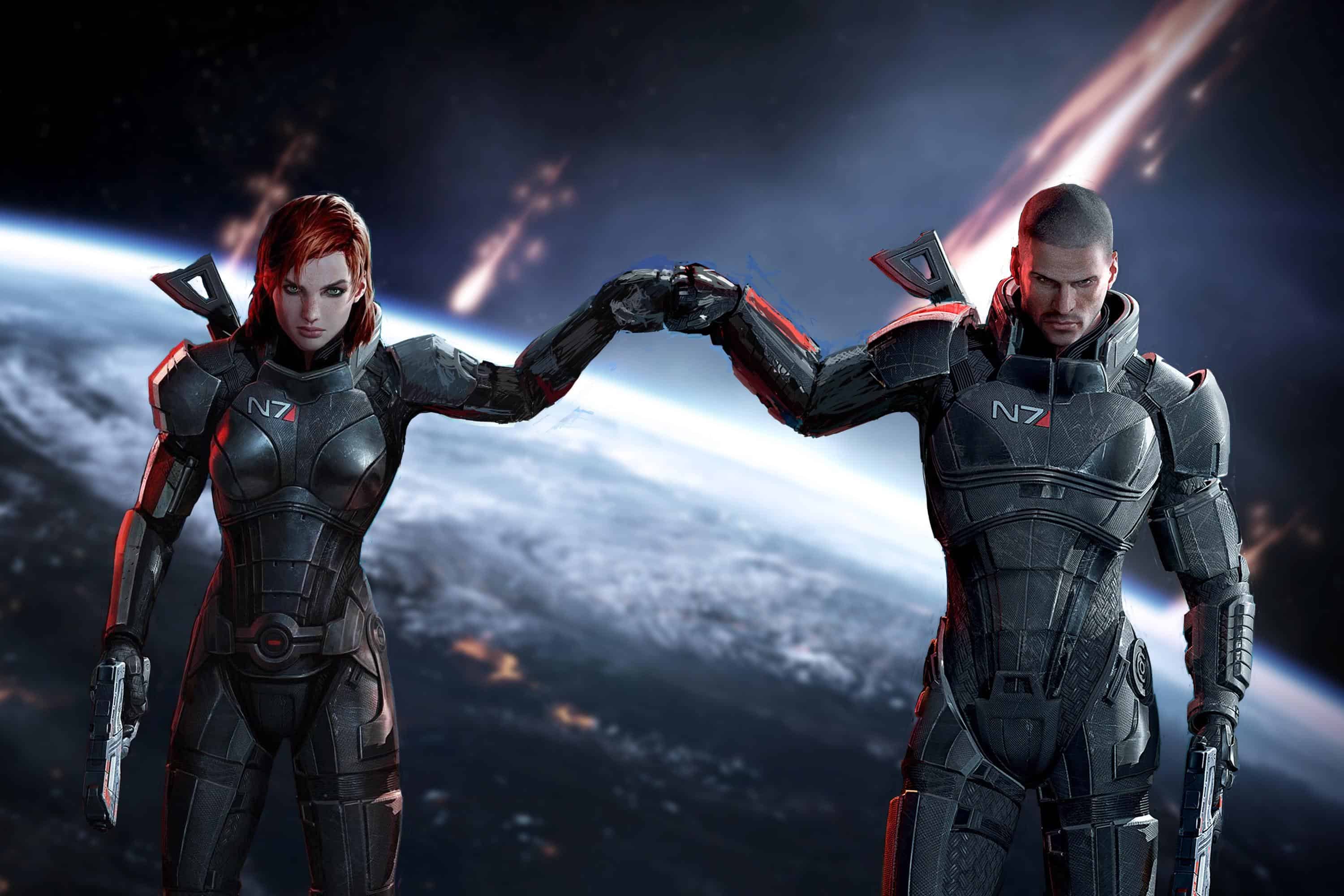
Courtesy of the public backlash surrounding Andromeda, Bioware started to move the development teams on the game to other projects. As a result, the studio stopped communicating updates to its players and altogether stopped supporting the game. Less than a year into the game’s release, and Bioware declared that they would no longer support the game and that all planned downloadable content had been cancelled. The move was met with even more public backlash than the title’s many bugs, and ended up as a huge slap in the face for the franchise’s most loyal fans.
Mass Effect is not dead… yet
As 2018 is coming to a close, Bioware’s latest game, Anthem, is nearing release. While thousands, if not millions, of fans will continue to boycott Bioware over the Andromeda scandal; the studio has mentioned that they do hope to pursue a new title in the Mass Effect franchise “in the future”. Let us just hope that when that happens, it will also be a return to form for the studio.
[Sources: CNet, Dualshockers, Escapist, Eurogamer, Fool, IB Times UK, IGN (ME3), IGN (ME2), PlayStation Lifestyle, The Sixth Axis]
Junior Editor at Vamers. From Superman to Ironman; Bill Rizer to Sam Fisher and everything in-between, Edward loves it all. He is a Bachelor of Arts student and English Major specialising in Language and Literature. He is an avid writer and casual social networker with a flare for all things tech related.

